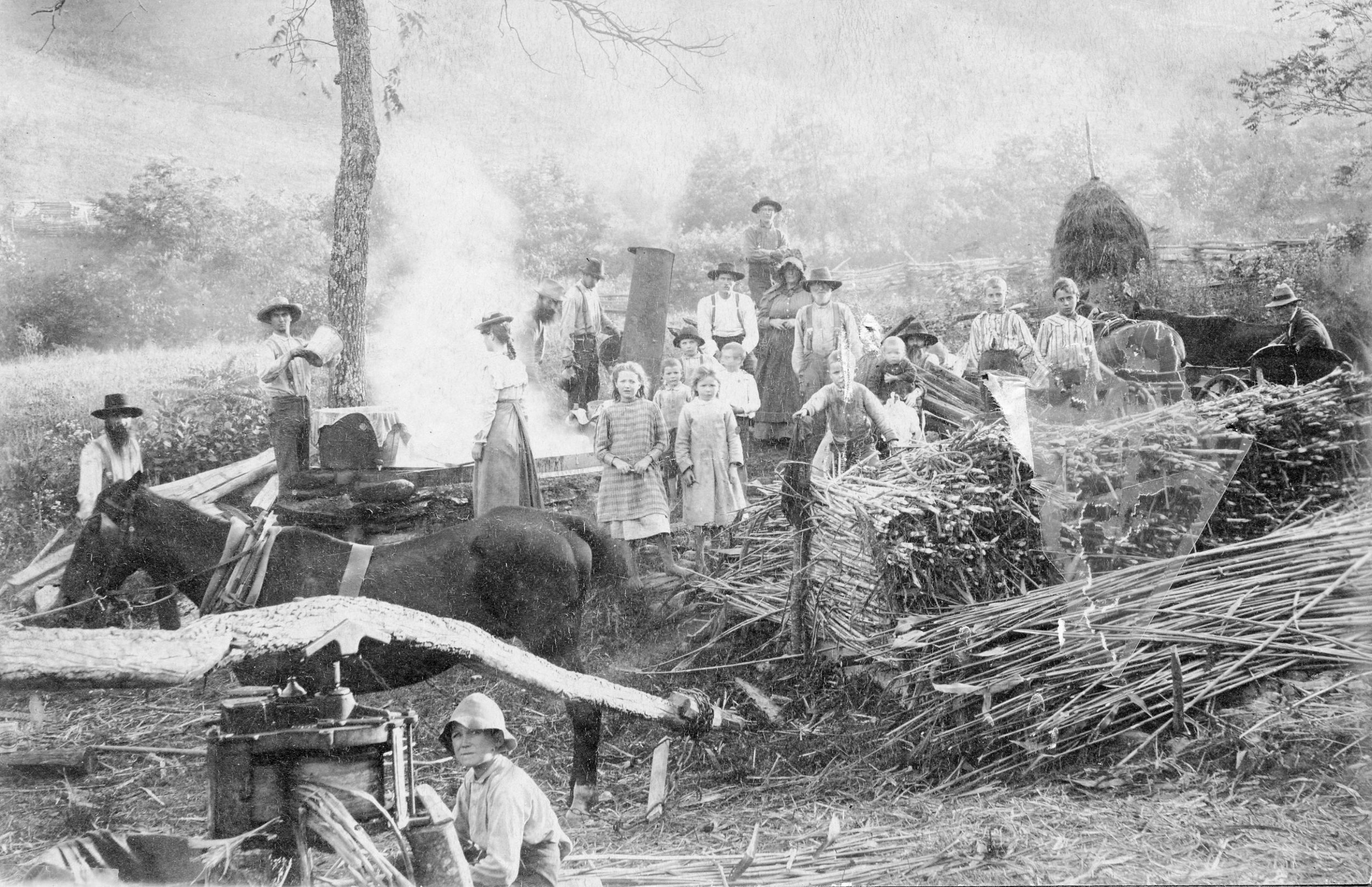Cabbage Chopper
“The last item I brought was a cabbage chopper and it belonged to my mama. That's how we made cabbage back when I was growing up, and I still use the cabbage chopper today. I prefer it over a food processor. It's probably made by a company named Rada, R-A-D-A, they make a lot of knives and other kitchen instruments. It might be made by Rada. When I was growing up my mother and my aunt canned a lot of sauerkraut. Mama grew the cabbage and she and my aunt would sit for hours and chop the cabbage with this cabbage chopper, and then they would go through the whole process of putting the cabbage in a crock and putting a rock on top of it to let it ferment. While it doesn't make kraut anymore, it makes plenty of coleslaw at my house in Canton.
“I grew up on a family farm. It wasn't a commercial farm, we just grew what we needed for ourselves. We had pigs and a milk cow and chickens and we raised a big garden and every year my sisters and I would sit under a big oak tree in our backyard and shell peas and cut corn off the cob and break beans. We had grapes and mama would make jelly and we would can all of that and she would make soup and we would freeze or can the soup and I learned how to do all of that from my mother. To this day, I still can the things that I grow in my own garden. That's becoming a lost art, people don't do that anymore. You can certainly buy things a lot cheaper in the grocery store, but I know what the inputs were, I know that it hasn't been sprayed with pesticides and that I grew it myself and that I know that I can control the ingredients. But I have great memories of growing up and helping in the garden and sitting under that big oak tree with mama and, just, learning how to do that. Especially her teaching me how to make jelly and watch it after you put the Sure jelly in and watch it begin to thicken and glide off the spoon and then, goodness, we washed jars. We didn't have dishwashers back then, so we washed all the jars with a little mop kind of implement called a ‘jar washer.’ Then we had to put them in scalding water and boil them and then pack the food in and then put the lid and the band around it and then put it in either a pressure canner or hot water bath depending on what the product was and what the preservation requirements were for it. But I'm really thankful that I learned how to do that from her and that I can still continue to do that.
“I have the cabbage chopper and then I have an egg whisk that is too rusty, that I don't use anymore. I have several of her butcher knives and probably a lot of her measuring spoons I still have, too. And every year my mama would raise 50 chickens from little—we called them ‘dibbies’ but I think the correct word is ‘biddies.’ We had a hen house and we would raise 50 every year and she would spend two days—a friend would help her—where on the first day she would kill 25 and then on the second day she would kill 25. She cut their heads off with a hatchet and she plucked them, cleaned them, gutted them, did all of that, and I remember seeing all the flies and everything go around. It was a horrendous process. She would put up 50 every year and usually that second night she would fry one for supper. But none of us, none of the girls, my sisters and I, could stand the thought of eating it. I thought that that was something that, just, to her was like washing clothes or ironing or whatever: it was just something she did. And I remember the year she told my daddy ‘this is the last year, I'm not doing this anymore.’ And so we quit filling the freezer with 50 chickens every year. That was usually a fried chicken every week, if you think about it.”
Interview edited for clarity
Submitted by June Jolley on July 18, 2022











